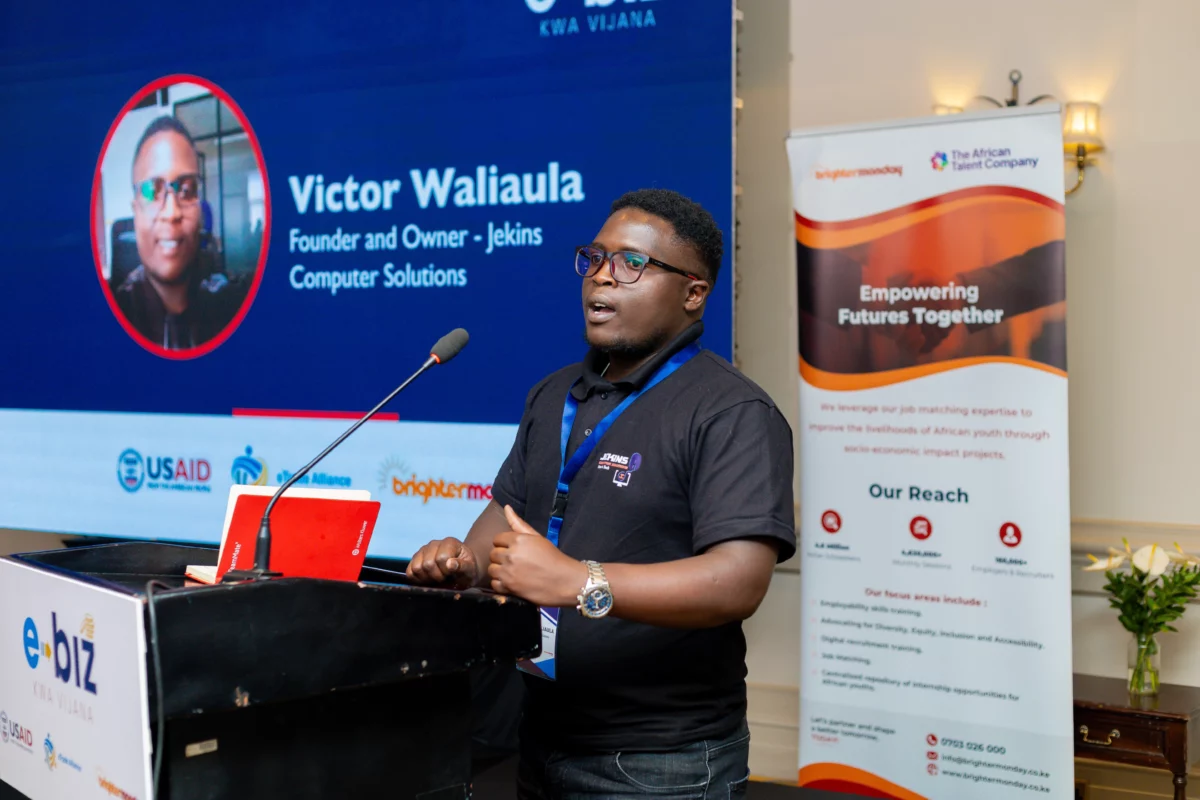Highlighted at a recent stakeholder forum reviewing the Kenya E-commerce Strategy, initially launched in December 2023, the symbiotic relationship between Kenya’s Micro, Small, and Medium Enterprises (MSMEs) and the burgeoning e-commerce sector is proving to be a powerful catalyst for economic growth.
The MSME sector in Kenya, encompassing over 7.4 million enterprises primarily run by young entrepreneurs, contributes approximately 40 percent of the country’s Gross Domestic Product (GDP). Consequently, Kenya’s E-commerce Strategy aims to foster innovation, inclusive participation, and economic growth through digital commerce for all Kenyans, regardless of location, age, gender, or abilities.
In a bid to empower and support these MSMEs, BrighterMonday Kenya launched the e-Biz Kwa Vijana program in May 2023. This ground-breaking initiative, funded by USAID through the e-Trade Alliance, sought to train 1,000 MSMEs in e-commerce and digital marketing skills. By June 2024, the program had surpassed its targets, imparting skills to over 2,000 beneficiaries and successfully onboarding 632 MSMEs onto e-commerce platforms.

Sharing his transformative experience, Victor Waliaula, proprietor of Jekins Computer Solutions in Nairobi and a beneficiary of the program, saying, “Through the training in digital strategies, I can now develop my own online advertisements and product promotions on social media. Before I joined the e-Biz Kwa Vijana program, I did everything manually, including data entry and sourcing customers through direct selling. Now, I am well equipped to position my brand, products, and services online, reaching millions of potential customers across the country.” Waliaula’s business has since seen a 30 percent increase in revenue.
The program also supported women entrepreneurs and people with disabilities. Lilian Wairimu, Co-Director of Jegos Enterprises, witnessed a 50 percent rise in sales revenue over the past year due to her enhanced online presence on platforms such as Instagram, TikTok, and Facebook.
“Previously, I would just sit in my shop waiting for walk-in customers and relying on corporate or government tenders, which are hard to come by due to their many requirements. The e-Biz Kwa Vijana program came at the perfect time, enabling me to expand my customer base significantly,” she said.
Chris Otundo, CEO of BrighterMonday Kenya, emphasized the program’s success in bridging the talent gap in Africa and unlocking opportunities for young entrepreneurs. “The success of this program indicates the strong entrepreneurial spirit in young people in Kenya today. We recognize the potential of e-commerce to revolutionize the local entrepreneurial landscape by equipping young people like Victor and Lilian with the necessary knowledge and tools to expand their market opportunities.”

Michael Mandu, Acting Secretary for Trade in the State Department for Trade, highlighted Kenya’s leadership in digital trade within Africa and globally.
“A large share of this revenue is attributable to MSMEs and youth-run enterprises, providing jobs and sustainable livelihoods while nurturing digital talents in the country. The Kenya National E-commerce Strategy is not just a policy document but a testament to our commitment to creating an environment where businesses can thrive, entrepreneurs can innovate, and every citizen can participate in the digital economy,” Mandu stated.
The e-Biz Kwa Vijana program reported that 95 percent of participating MSMEs gained new ideas for their online businesses, with 86 percent achieving their first-ever online sale after the training.
Additionally, 61 persons with disabilities received business coaching, with 15 getting onboarded onto various e-commerce platforms. Furthermore, 28 percent of participants increased their number of employees to support their growing online business activities, and 95 percent were willing to allocate a monthly e-commerce budget after recognizing the return on investment.
With an internet penetration rate above 74 percent and a growing middle class relying on the convenience of online shopping, Kenya is well-positioned for e-commerce growth. This connectivity allows entrepreneurs to access broader customer bases and new markets, opening up the limitless potential for expansion and growth in economy.
















